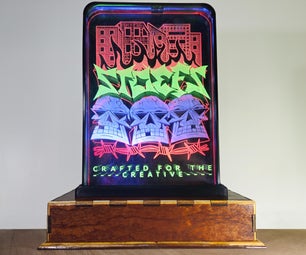Introduction: Simple Basic LED Circuit (How to Use LEDs)
This instructable will guide how to use LEDs and how to make simple basic LED circuits, which current limiting resistor to use for operating LEDs with 3V, 6V, 9V & 12V.
An LED is an important component in electronics, it is used for several indication and other decoration purposes. However you can not connect them directly with the power source, connecting them directly will immediately destroy them, so it is always suggested to use a proper current limiting resistor with LED's, but using a wrong value resistor will also shorten their life.
In this guide you will learn how to connect LED's with different power sources and what type of current limiting resistor you can use. More details about the project will be find on our page here...Simple Basic LED Circuit
Step 1: 3 Volt Basic LED Circuit With 10 Ohms Resistor.
The above diagram shows a 3V LED circuit, in this circuit there are two AA cells are used. When you are operating an LED with 3V you have to use minimum 10 ohms resistor . For more details visit Simple Basic LED Circuit
Step 2: 6 Volt Basic LED Circuit With 390 Ohms Resistor.
A minimum value of 390 ohms resistor should be used when operating an LED with a 6 volt supply or 6V battery as shown above.
Step 3: 9 Volt Basic LED Circuit With 470 Ohms Resistor
If you are operating the LED with a 9V power supply or battery then use a minimum value of 470 ohms resistor as current limiter for the LED.
Step 4: 12 Volt Basic LED Circuit With 560 Ohms Resistor
For operating an LED with a 12V power supply or battery use minimum 560 ohms value resistor, or you can also use 1K maximum value.
Read more about this project on the below link.
Project page: Simple Basic LED Circuit











